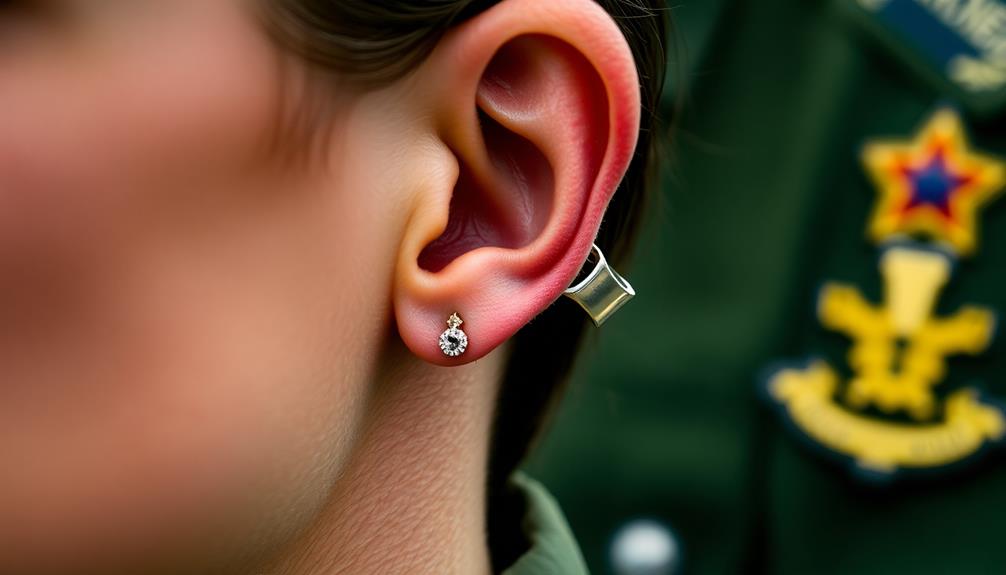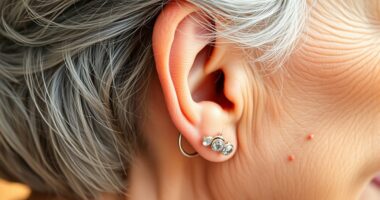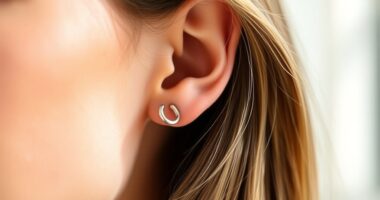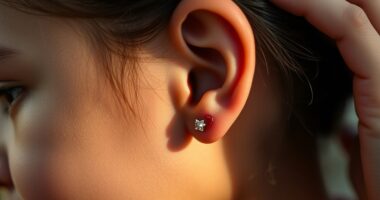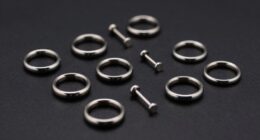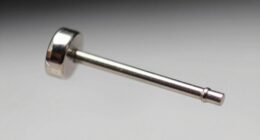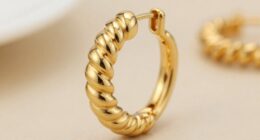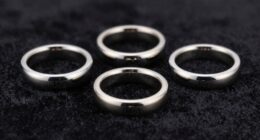Piercings are more than just body modifications; they're powerful symbols marking important life changes. Whether celebrating a graduation, healing from loss, or entering a new chapter, each piercing captures a unique moment in your journey. Historically, different cultures have used piercings to signify milestones and rites of passage. They can represent commitment, empowerment, or even a fresh start. The jewelry you choose often reflects personal beliefs and values. Connecting with this tradition might inspire you to honor your own moments. Discover how piercings can serve as memorable markers in your life's narrative and learn about their deeper meanings.
Key Takeaways
- Piercings symbolize significant life transitions, representing personal growth, achievements, and new beginnings after experiences of change or loss.
- Cultural practices link piercings to rites of passage, marking milestones like coming of age, marriage, or initiation into adult roles.
- Modern piercing trends emphasize individual expression through unique placements and personalized jewelry, reflecting contemporary aesthetics and empowerment.
- Piercings serve as visual markers of identity, connecting individuals to cultural heritage and fostering a sense of belonging within communities.
- Proper care and safety protocols are essential for healing, ensuring piercings remain a positive symbol of transformation and self-discovery.
Historical Significance of Piercings
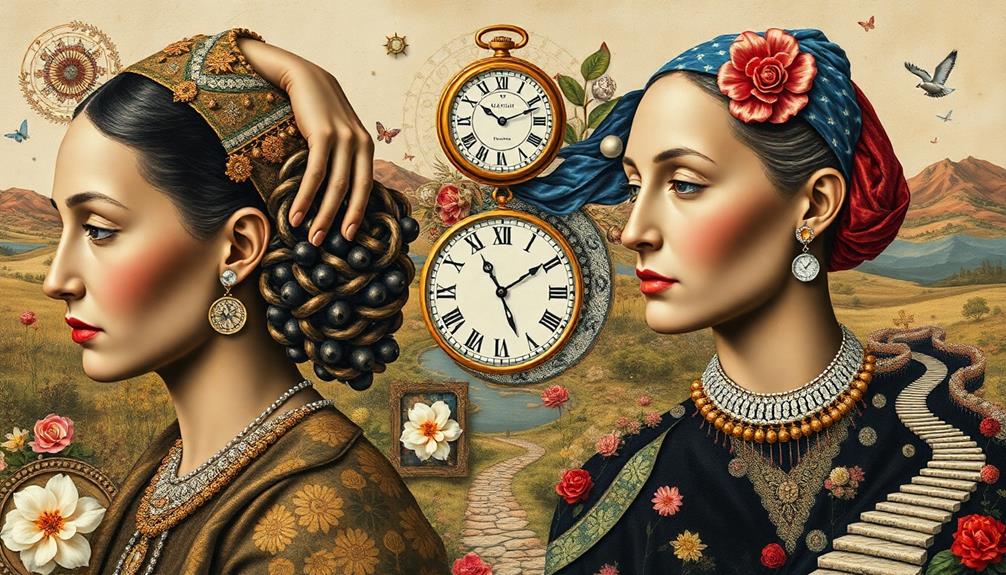
Throughout history, the significance of piercings has transcended mere decoration, embodying deep cultural meanings tied to life's crucial moments. You mightn't realize it, but body piercings often serve as essential markers of rites of passage, reflecting your cultural identity and the milestones you celebrate.
In ancient Egypt, for example, nose and ear piercings weren't just adornments; they symbolized social status and protection during significant life events.
Similarly, many Indigenous tribes, including Native American and African cultures, used piercings in initiation ceremonies. These rituals demonstrated an individual's readiness to assume adult roles, marking a change in their community standing.
In India, the nose piercing tradition links closely to weddings, symbolizing beauty and good fortune as you shift from singlehood to married life.
Across various cultures, specific piercings can denote your social status or tribal affiliation, serving as visual markers during important life events.
Life Transitions and Milestones

Life changes and milestones often prompt you to seek ways to express your evolving identity, and body piercings can serve as powerful symbols of these changes. By choosing to get a piercing, you're not just altering your appearance; you're marking significant moments in your life.
Whether it's a coming-of-age event, a wedding, or a personal transformation, these piercings represent self-expression and personal growth. In many cases, the choice to adorn your body can also reflect a deeper understanding of your emotional experiences, similar to how individuals may navigate emotional abuse in relationships.
Here are some ways piercings connect to life shifts:
- Commemorate milestones: Celebrate achievements like weight loss or personal growth.
- Cultural significance: Engage in practices that reinforce your cultural identity and belonging.
- Symbol of love: Use piercings during wedding ceremonies as a mark of commitment.
- Empowerment: Choose specific piercings to enhance your sense of femininity and strength.
- New beginnings: After a breakup or personal loss, piercings can signify a fresh start.
In each case, body piercings transform into meaningful markers of your journey, allowing you to express who you're and who you're becoming.
Symbolism Behind Piercings

Body piercings are more than just aesthetic choices; they often embody significant meanings and personal stories. The symbolism behind piercings can vary greatly, reflecting your life experiences and cultural background.
Many cultures regard piercings as rites of passage, marking important milestones like coming of age or marriage. For instance, in African tribes, lip and earlobe piercings signify cultural pride and personal identity during key life events.
In India, a nose piercing traditionally symbolizes beauty and is part of wedding rituals, conveying good luck and marital status. Each piercing can carry unique meanings tied to your personal milestones, serving as a physical reminder of resilience and transformation during significant life changes.
Whether you choose an earlobe or nose piercing, you're not just making a fashion statement; you're also connecting with the deeper cultural significance of body art.
These decisions often reflect a moment in your life, representing your journey, beliefs, and values. So, as you consider getting a piercing, think about the rich symbolism it may hold for you, marking not just an aesthetic choice, but an important milestone in your life.
Cultural Rituals and Ceremonies
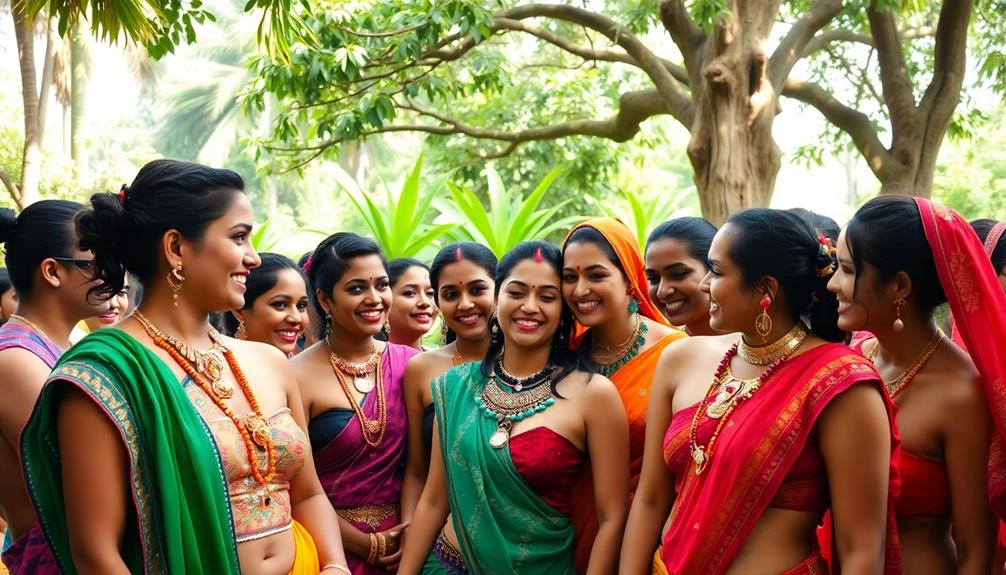
When you explore cultural rituals and ceremonies, you'll find that piercings often play an essential role in rites of passage.
These practices symbolize significant life changes, marking moments like coming of age or marriage.
Understanding these traditions can deepen your appreciation for the meanings behind body piercings in various cultures.
Rites of Passage
Marking significant life changes, piercings serve as powerful symbols in various cultural rites of passage. These important moments highlight the change between stages of life, often accompanied by rich traditions and communal celebrations.
For many, piercings aren't just body modifications but also profound markers of identity and belonging.
- In Indigenous cultures, initiation ceremonies use piercings to symbolize the shift from childhood to adulthood.
- African tribes often highlight cultural pride through lip and earlobe piercings during initiation rituals.
- In India, brides traditionally receive nose piercings during weddings, symbolizing beauty and good fortune.
- Spiritual piercings link individuals to the metaphysical domain, reinforcing personal beliefs.
- These rites of passage create connections between individuals and their communities, affirming shared values and traditions.
With each piercing, you embrace the spiritual significance behind these rituals, celebrating your journey and the milestones that shape who you are.
Whether you're entering adulthood, getting married, or marking another important moment, piercings can serve as lasting symbols of your cultural heritage and personal growth.
Symbolism in Ceremonies
Piercings often play a vital role in cultural rituals and ceremonies, serving as potent symbols that convey deeper meanings. These body art forms often mark important changes in life, such as reaching adulthood, marriage, or significant personal milestones.
Many cultures practice these ancient rituals to emphasize spiritual connections and communal identity. For instance, Indigenous cultures integrate piercings into elaborate ceremonies celebrating life events, while certain African tribes perform lip and earlobe piercings as rites of passage, highlighting cultural pride and growth.
In India, nose piercings are integral to wedding rituals, symbolizing beauty, prosperity, and marital status. Modern ceremonies embrace body piercings as acts of personal liberation, allowing individuals to express their unique journeys.
| Culture | Symbolism |
|---|---|
| Indigenous | Spiritual connection |
| African Tribes | Cultural pride |
| India | Beauty and prosperity |
These examples illustrate how piercings serve as more than mere decorations; they encapsulate significant life changes and the values embedded in each culture. By understanding this symbolism, you can appreciate the rich tapestry of meaning behind each piercing.
Modern Trends in Piercing

The world of modern piercing is vibrant and ever-evolving, showcasing unique placements like daith, forward helix, and conch that have become increasingly popular.
These piercing locations not only enhance your body adornment but also serve as a canvas for self-expression and cultural significance. With the influence of astrology, certain piercings may even reflect your zodiac sign's charm, adding a layer of personal connection to your choices star appeal in astrology.
Minimalist jewelry styles are making waves, with delicate studs and subtle hoops reflecting a shift towards understated elegance.
Social media platforms like Instagram and TikTok play an essential role in shaping modern trends in piercing. Influencers and viral challenges showcase diverse styles and placements, making it easier for you to explore new possibilities.
Additionally, the rise of custom and personalized jewelry options allows you to express your individuality and commemorate significant life events uniquely.
Consider these key aspects when exploring modern piercing trends:
- Unique placements are gaining popularity.
- Minimalist jewelry reflects a contemporary aesthetic.
- Social media drives new styles and ideas.
- Custom jewelry fosters personal significance.
- Celebrities influence broader acceptance of diverse piercings.
With these trends, your piercing can become a powerful symbol of your journey and individuality, embracing both beauty and meaning.
Personal Empowerment Through Piercings

Body piercings can serve as powerful tools for personal empowerment, allowing you to reclaim control over your identity and express your uniqueness. Choosing to modify your body through piercings can enhance your confidence and foster self-acceptance. Each piercing often marks significant life events, symbolizing your journey of resilience and transformation.
Here's a breakdown of how piercings relate to personal empowerment:
| Aspect | Description | Emotional Impact |
|---|---|---|
| Significant Events | Graduations, recoveries, and new beginnings | Creates lasting memories and milestones |
| Self-Expression | Reflects individuality through chosen designs and styles | Boosts confidence and authenticity |
| Physical Reminders | Symbols of resilience during personal growth | Encourages ongoing self-discovery |
| Deliberate Choice | Empowering act of choosing how to modify your body | Reinforces control over personal identity |
| Cultural Connections | Links to heritage or personal beliefs | Strengthens sense of belonging |
Through your piercings, you can embrace your journey, celebrating each moment of self-discovery and growth.
Health and Safety Considerations

When you get a piercing, using sterile equipment is key to preventing infections.
You'll also need to follow aftercare best practices to guarantee your new piercing heals properly.
Taking these steps helps protect your health and enhances your piercing experience.
Sterile Equipment Importance
Ensuring sterile equipment during the piercing process is essential for your health and safety. Non-sterile tools can introduce harmful bacteria into your body, leading to serious complications.
When you choose professional piercing studios, you're opting for a space that adheres to strict health regulations. These studios must guarantee that all needles, gloves, and jewelry are sterilized before use.
Here are some key points to take into account:
- Always ask if the studio uses single-use, disposable needles.
- Confirm that they employ autoclave sterilization for reusable equipment.
- Check for visible evidence of the studio's sterilization practices.
- Be aware of the risks of infections, such as abscesses and systemic infections.
- Choose a reputable piercer to minimize potential complications.
Aftercare Best Practices
After getting a piercing, proper aftercare is vital for promoting healing and preventing infection. Start by using aftercare best practices, which include cleaning your piercing with a saline solution or a mild saline wound wash twice a day for ideal healing. This routine helps keep the area clean and reduces the risk of complications.
Avoid swimming in pools, hot tubs, or natural bodies of water for at least four to six weeks. These environments can introduce bacteria that may lead to infection.
Also, limit touching or playing with your piercing; the more you handle it, the greater the chance of irritation or infection. Always wash your hands before cleaning or touching the area to make sure you're using sterile equipment.
It's important to monitor the piercing for any signs of infection, such as increased redness, swelling, or discharge. If you notice these symptoms or have any concerns, consult a healthcare professional immediately.
Following these guidelines will help guarantee your piercing heals properly and stays healthy, allowing you to enjoy this new expression of yourself without complications.
Aftercare for New Piercings

Proper aftercare is essential for new piercings to guarantee they heal correctly and remain infection-free. You should clean your new piercing with a saline solution or a recommended cleaning solution at least twice a day. This practice prevents infections and promotes healing.
It's also important to note that you shouldn't touch or twist the jewelry unnecessarily, as this can irritate the piercing and disrupt the healing process.
To ascertain a smooth healing experience, consider the following tips:
- Avoid swimming in pools, hot tubs, or natural waters for at least 4-6 weeks.
- Monitor the piercing daily for any signs of infection, such as excessive redness, swelling, or discharge.
- If you notice concerning symptoms, consult a healthcare professional immediately.
- Maintain long-term care by regularly cleaning the area.
- Opt for hypoallergenic jewelry materials to minimize allergic reactions and skin irritation.
Stories of Transformation Through Piercings
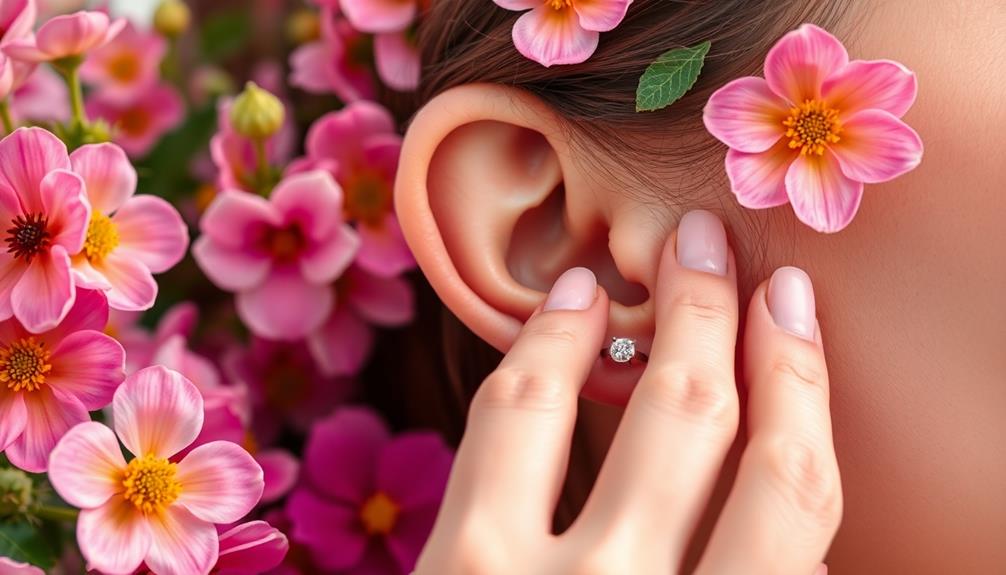
Piercings can be a powerful tool for personal transformation, serving as tangible markers of significant life changes. Throughout the history of body piercing, cultures have embraced this practice as a rite of passage, with specific piercings symbolizing shifts into adulthood or acceptance within a community. Your motivations behind choosing a piercing often reflect deeper meanings, marking personal milestones like graduations or new beginnings.
For those experiencing emotional challenges, such as traversing a divorce, piercings can also symbolize a journey toward healing and self-discovery, helping to reclaim identity amidst turmoil emotional dysregulation in relationships.
When you decide to get a piercing, it can represent a form of self-expression, channeling your journey toward empowerment and healing. Each piercing tells a story—perhaps it symbolizes overcoming challenges or embracing a new phase in life. Many individuals report a surge of confidence and self-acceptance following their transformation, highlighting the psychological impact of body modification.
These personal narratives often intertwine themes of liberation and renewal, as you reclaim your identity with each new adornment. Ultimately, piercings provide not only a physical change but also an emotional evolution, marking significant moments in your life and celebrating the journey of who you're becoming.
Frequently Asked Questions
What Types of Piercings Are Most Popular for Life Transitions?
When considering popular piercings, you might find earlobe, nose, and cartilage piercings topping the list. Each offers a unique way to express yourself and commemorate significant changes, blending style with personal significance in your journey.
How Do Different Cultures Perceive Piercings During Milestones?
You might not realize how deeply cultures intertwine piercings with milestones. In some, they're symbols of adulthood or spiritual journeys, while others see them as mere adornments. Each perspective reveals a unique story waiting to be told.
Can Piercings Impact Professional Opportunities or Social Perceptions?
Yes, piercings can impact professional opportunities and social perceptions. Some employers might view them negatively, affecting hiring decisions, while others embrace individuality. It's crucial to reflect on your industry and audience when making choices about piercings.
What Are Common Misconceptions About Getting Piercings for Symbolism?
You might think piercings only represent rebellion or carelessness, but they often symbolize personal growth and self-expression. Many overlook their deeper meanings, assuming they're just trends rather than significant markers of identity and change.
Are There Age Restrictions for Getting Piercings in Various Cultures?
Age restrictions for piercings vary across cultures. In some places, you might need parental consent if you're under a certain age, while others might allow you to get them freely. Always check local laws before deciding.
Conclusion
In your journey through life's changes, piercings can serve as powerful personal markers. Whether you're celebrating a significant milestone or seeking self-empowerment, each piercing tells a unique story. Embrace the beauty of body art, and remember that every choice reflects your individuality. As you navigate this transformative path, prioritize health and safety, ensuring a seamless experience. Let your piercings be a bold badge of bravery, symbolizing strength, style, and the stunning saga of you.


